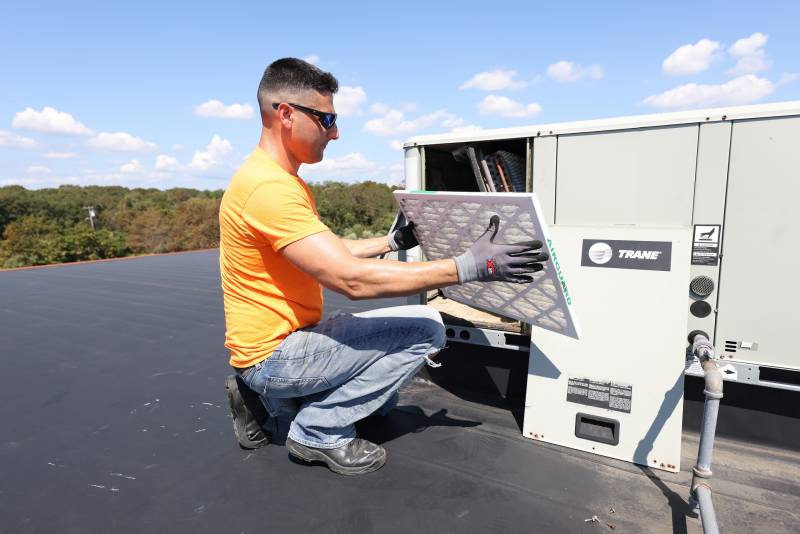Clean Air at Home
Keep windows and doors closed and focus on cleaning the air inside your home. You can do that with an air purifier that uses a high-efficiency particulate air filter, or HEPA filter. These portable air purifiers force air through a filter, which catches harmful particles like those from smoke, dust or mold. HEPA filters are particularly good at cleaning the air in smaller spaces or individual rooms. While these purifiers won’t remove all hazardous particles from the air, studies have shown that they are effective at reducing them.
Portable HEPA air purifiers can be purchased online and in stores. They range in cost, but you don’t have to spring for top price to get top quality. Alternatively, some people are building their own air purifiers out of a box fan, a minimum efficiency reporting value — or MERV filter — and heavy-duty tape, for a price of roughly $50.
Jose-Luis Jimenez, a chemistry professor at the University of Colorado Boulder, says the do-it-yourself purifiers work. But it’s important not to leave them unattended, as it could be a fire hazard if the fan gets too hot, Jimenez says.
For those running air conditioning units, check that they are not bringing in outside air. If outside air is coming in, make sure it passes through a MERV filter, preferably MERV 14, 15 or 16.
Additionally, it’s important to reduce the amount of indoor air pollution we create, says Theresa Pistochini, an engineering manager at the UC Davis Energy and Efficiency Institute and Western Cooling Efficiency Center.
“Avoid generating other pollutants indoors: temporarily avoid cooking on a gas stove, candles, incense, etc.,” she said. “Shut off kitchen and bathroom exhaust fans to reduce air exchange with [the] outdoors.”
Clean Air in Shared Spaces
Smoke particles range in size — from large to ultra fine. Richard Corsi, dean of engineering and computer science at Portland State University, says using strong MERV filters in building HVAC systems is the most effective in catching very small particles. The air filters used in HVAC systems have ratings. If your HVAC system can accommodate it, a MERV 14, 15, 16 or a HEPA filter is ideal.
If buildings can’t accommodate stronger filters, Corsi advises not using the building for the time being.
To learn about the capacity of filters used in HVAC systems, it may be best to ask the facilities department, a building manager or human resources. Portable HEPA air filters can further clean the indoor air.
This post is adapted from an earlier KQED story.
